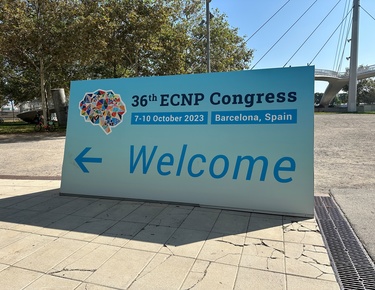
One of the goals of the European College of Neuropsychopharmacology (ECNP) is to facilitate the dialogue between researchers, patients and other stakeholders. At ECNP2021 the Patient Session focused on the challenges of coping with a psychiatric illness during the COVID-19 lockdown in Europe. Complimenting this was a symposium looking at implications of the COVID-19 pandemic for the mental and physical health of people living with schizophrenia.
The psychiatrist’s experience
Celso Arango (Institute of Psychiatry and Mental Health Hospital, Madrid, Spain) began the Patient Session by reflecting on his experience as a psychiatrist in a pandemic. Those healthcare systems that could adapt, reorganize, and reallocate, were most successful. Dr Arango suggested that the pandemic provides an important opportunity to improve mental health services1,2, including disseminating good practice and focusing on mitigating disparities in healthcare provision.
The pandemic provides an important opportunity to improve mental health services
The community experience
Filipa Palha (Portuguese Catholic University, Porto, Portugal) described her role in coordinating several community-based initiatives for people affected by mental health problems. There have been significant challenges in being a mental health patient during the COVID-19 pandemic,3,4 including exacerbation of symptoms/emergence of comorbid problems, early discharge from psychiatric units, difficulties in accessing the healthcare team, disruption of daily routines and confinement at home. For many, community-based services were their only source of socialization.
There have been significant challenges in being a mental health patient during the COVID-19 pandemic
The patient’s experience
Hilkka Karkkainen (President of the Global Alliance of Mental Illness Advocacy Networks [GAMIAN-Europe], Finland), presented results of a survey carried out by GAMIAN-Europe in late 20205. This patient-driven pan-European organization represents the interests of people affected by mental illness.
51% of respondents reported worsening of their mental health during the pandemic in a patient advocacy survey
Via its member organization, the online survey gathered the views of over 500 individuals (with pre-existing mental health conditions) on the impact of COVID-19 on their mental health. The main findings were:
- 51% had worsening of their mental health
- 57% experienced a change/decline in their mood
- 18% were unable to access mental health services
- 31% described their mental health care as inadequate
- 60% had a change in the way they received mental healthcare (mostly to phone consultations)
- 85% received most of their support from family, friends and/or caregiver
- 45% had pre-existing physical health problems
- 20% were unable to access general health services for their physical health problems
Ms Karkkainen stressed the need for more resources and funding, support for families and caregivers, and further development of e-health initiatives.
Impact on outcomes
Patients with psychiatric diagnoses have an increased risk of hospitalization and death regardless of COVID-19
In the symposium, Amir Krivoy (Tel Aviv University, Israel) discussed outcome data for people living with schizophrenia and other psychiatric diagnoses infected with COVID-19. Some studies have shown a higher incidence of hospitalization and mortality6,7, but Dr Krivoy presented unpublished data from their study indicating that this may be substantially explained by the increased risk of hospitalization and death regardless of COVID-19. He also presented data from his institute suggesting the use of antidepressants or antipsychotics does not appear to affect COVID-19 severity or risk of death among people with psychotic disorders.
Positive effects of healthcare adaptations
There are potential positive effects from adaptions to mental healthcare during the pandemic
Carmen Moreno (Hospital Gregorio Marañón, Madrid, Spain) went on to describe the adaptations to mental healthcare that were required during the COVID-19 pandemic. There were many negative effects, but there are also potential positive effects1:
- Improvement in mental health education
- Opportunity to improve self-care, coping strategies and family support
- Stimulation of non-governmental social support networks
- Leveraging of technology to facilitate rapid and flexible communication
- Reassessment of appropriate provision of digital health care and at-home treatment
- Increased acceptability of some medications, for instance long-acting injectables
- Monitoring of adverse events with a greater focus on shared decision making and biometric monitoring
- Reassessment of length of inpatient stays and need for compulsory treatment



